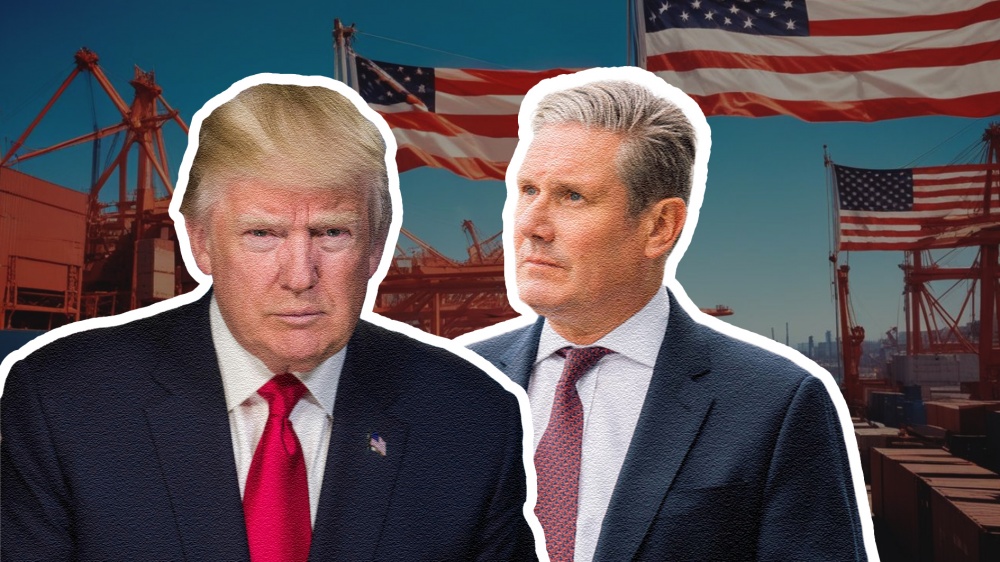US–UK reach deal, 10% import tariff remains

JAKARTA – US President Donald Trump and UK Prime Minister Keir Starmer have officially announced a limited bilateral trade agreement between the two nations.
Although hailed as a “historic day,” the deal maintains a 10% import tariff on most British goods entering the US market.
This marks Trump’s first announced trade agreement in his second term, part of a broader push to reduce the US goods trade deficit, which stands at USD 1.2 trillion.
Trump had previously imposed steep tariffs on 57 trading partners, including the European Union, targeting sectors such as automotive, steel, aluminium, film, and pharmaceuticals.
Under the agreement, the average UK tariff on US goods will fall from 5.1% to 1.8%, opening new export opportunities worth USD 5 billion annually for American manufacturers.
In return, the UK secured a reduction in US import tariffs on cars from 27.5% to 10% for a quota of 100,000 vehicles per year—roughly equivalent to Britain’s total car exports to the US last year.
The US will also lift a 25% tariff on UK steel and a 19% duty on American ethanol, while granting a tariff-free quota for US beef exports of 13,000 metric tonnes, without compromising the UK’s food safety standards.
The British government reaffirmed that it would not relax its food safety regulations, including a continued ban on hormone-treated US beef.
Trump called the deal a major victory, while Starmer described it as a “breakthrough” that would deepen bilateral ties and create new jobs.
However, some groups, such as British-American Business, criticised the continued application of the 10% tariff on many UK exports, including cars.
The agreement does not address key issues such as the UK’s digital services tax on US tech giants and falls short of eliminating non-tariff trade barriers.
The UK government said the deal is a first step toward a long-term trade partnership that will continue to evolve.
Symbolically, the announcement coincided with the 80th anniversary of the end of World War II in Europe, adding historical significance to the accord.
Still, economists forecast that the immediate economic impact of the deal will be limited, though it could boost economic growth and trade integration over time.
Trump emphasised that the UK deal would not set a precedent for other trade agreements, particularly with countries running large trade surpluses with the US.
Amid global uncertainty and domestic pressure over tariffs, the Trump administration said it plans to unveil dozens of new trade deals in the coming weeks. (EF/ZH)